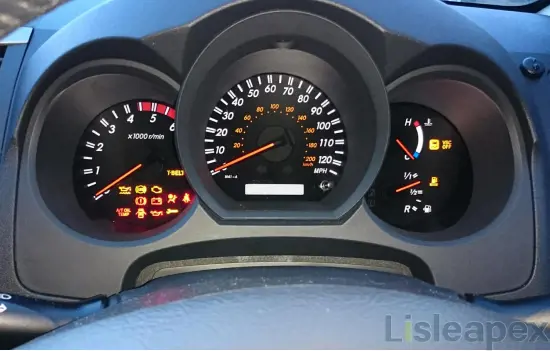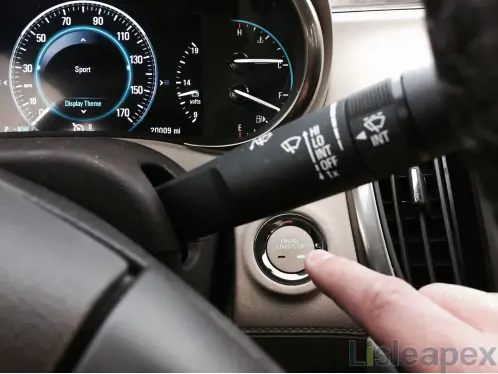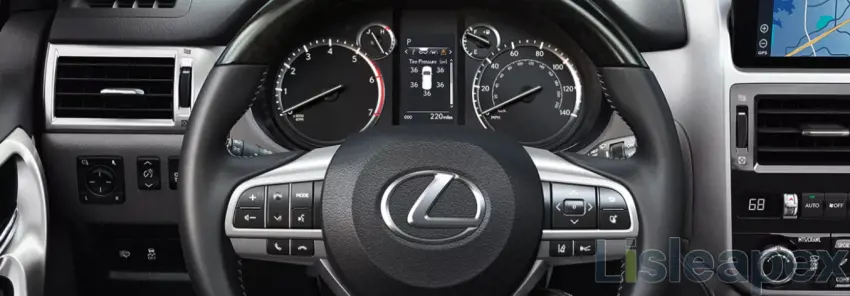What is VSC Light
The VSC Light refers to the Vehicle Stability Control system indicator light. Vehicle Stability Control is a system designed to enhance vehicle stability by detecting and reducing skidding or loss of traction.

When the VSC Light illuminates on a vehicle's dashboard, it typically indicates a potential issue with the VSC system or that it has been deactivated for some reason. This could be due to various factors such as system malfunction, sensor issues, or manual deactivation. When the VSC Light is on, it is generally recommended to have the vehicle inspected by a qualified technician to diagnose and address any underlying issues.
What Does it Mean When the VSC Light On or Off
When the VSC (Vehicle Stability Control) light illuminates or remains off in your vehicle, it can indicate various underlying issues that require attention:
Engine Misfire: The VSC light, accompanied by engine shaking and a flashing check engine light, may signal an engine misfire. This occurs when one or more cylinders fail to ignite the fuel-air mixture properly due to factors like worn spark plugs, faulty ignition coils, or malfunctioning fuel injectors.
Faulty Sensor: Dysfunction in sensors crucial to the VSC system, such as wheel speed sensors or the yaw rate sensor, can trigger the VSC light. Similarly, issues detected by engine sensors may activate the check engine light and indirectly affect the VSC system.
ABS System Problem: Since the ABS (Anti-lock Braking System) cooperates with the VSC system, any malfunction in the ABS system can lead to the activation of the VSC light and cause shaking during braking or acceleration.
Traction Control Issues: Problems with the traction control system, like faulty wheel speed sensors or a malfunctioning control module, can trigger the VSC light as the VSC system and traction control are closely interlinked.
Other Mechanical Issues: Various mechanical problems, such as a malfunctioning throttle position sensor, fuel system issues, or damaged engine components, can affect both engine performance and the VSC system's stability maintenance.
If the VSC light illuminates while driving, it's generally safe to continue, but be aware that the VSC system might be compromised. Driving without it could diminish vehicle stability, especially in challenging driving conditions or during sudden maneuvers.
However, if the VSC light accompanies signs like a flashing check engine light and engine shaking, immediate inspection by a qualified mechanic is crucial. They can diagnose the specific issue by retrieving error codes from the onboard computer and conducting a thorough examination, ensuring prompt resolution to prevent further damage and maintain safe vehicle operation.
Is it Safe to Drive with VSC Light on
Driving with the VSC (Vehicle Stability Control) light illuminated can be safe, but it's essential to understand that the VSC system may be disabled or not functioning correctly. The VSC system helps improve vehicle stability by detecting and reducing skidding or loss of traction. When the VSC light is on, it typically indicates a problem with the system or that it has been deactivated.
Here are some considerations:
Limited Stability Control: Without the VSC system active, your vehicle's stability control may be compromised. This can particularly affect handling and traction in challenging driving conditions such as wet or slippery roads, sharp turns, or emergency maneuvers.
Risk of Skidding: The VSC system helps prevent skidding and loss of control during sudden maneuvers or adverse road conditions. Without it, there may be an increased risk of skidding, especially in situations where traction is reduced.
Maintain Caution: If you must drive with the VSC light on, it's important to maintain extra caution. Drive at moderate speeds, avoid sudden movements or aggressive driving maneuvers, and increase following distances to give yourself more time to react to unexpected situations.
Seek Repairs Promptly: While driving with the VSC light illuminated may be safe for a short period, it's crucial to address the underlying issue promptly. Ignoring the problem could lead to further damage or compromise vehicle safety in the long run.
Professional Inspection: Once it's safe to do so, have your vehicle inspected by a qualified mechanic to diagnose and repair the issue causing the VSC light to illuminate. They can identify the specific problem and restore the functionality of the VSC system, ensuring your vehicle operates safely.
In summary, while it may be safe to drive with the VSC light on for a short distance, exercise caution and seek repairs promptly to maintain optimal vehicle safety and performance.
Easy Tips to Fix the VSC Light on
VSC Light Easy Fix:
Step1. Locate the VSC button, typically found near the shifter or steering wheel, depending on your Toyota's model year. The button will have the same icon as the VSC light in your gauges.

Step 2. Ensure the vehicle is completely stopped. If possible, shift the car into park.
Step 3. Press and hold the VSC button for a few seconds.
Step 4. The TRAC OFF and VSC OFF indicator lights will illuminate, indicating that both systems are now turned off.
Step 5. Press the VSC button again to reengage both systems. The indicator lights will turn off.
If the VSC OFF light persists, it may indicate a computer glitch or a malfunction within the vehicle's VSC system. While driving with the VSC OFF light illuminated is generally safe, exercise caution, especially in adverse weather conditions.
How to Reset VSC Light - Lexus
Resetting the VSC (Vehicle Stability Control) light in a Lexus is a straightforward process. Here's a concise guide:

Understand the VSC System: The VSC light indicates the status of the Vehicle Stability Control system. It helps enhance vehicle stability by assisting in controlling skidding during sudden maneuvers or on slippery roads.
Determine if Resetting is Necessary: Reset the VSC light if you have manually turned off the TRAC (Traction Control) and VSC systems. This may be necessary if you find yourself stuck in snow, mud, or dirt, where the wheels need more power from the engine to regain traction.
Automatic Reset: In most cases, if you have turned off the TRAC and VSC systems, they will automatically re-enable when you turn off the engine. However, if both systems were turned off, they may not automatically re-enable even as the vehicle speed increases.
Monitor System Status: If the TRAC and VSC systems do not re-enable as expected, it's crucial to have your vehicle checked by a qualified professional as soon as possible. Proper functioning of these systems is essential for safe driving, especially in challenging road conditions.
Maintenance Tips: Regularly monitor the operation of the TRAC and VSC systems. Any unusual noises or warning messages indicating system deactivation should prompt immediate inspection by a professional technician.
Consult a Lexus Dealer: For any maintenance or assistance related to the VSC system, it's advisable to contact a Lexus dealership. They can provide expert guidance and ensure that your vehicle's systems are functioning optimally.
By following these steps and staying vigilant about the operation of your Lexus's VSC system, you can help maintain safe driving conditions and ensure optimal vehicle performance.
FAQ
-
How much does it cost to repair the VSC system?
The cost of repairing the VSC system can vary depending on the underlying issue, the make and model of the vehicle, and labor rates in your area. Minor issues such as a faulty sensor or wiring harness repair may be relatively inexpensive, while more complex problems like a malfunctioning electronic control unit (ECU) or steering angle sensor replacement could be more costly. It's recommended to obtain estimates from reputable automotive repair shops or dealerships for an accurate assessment of repair costs.
-
Can I drive with the VSC light flashing?
Driving with the VSC light flashing indicates an active fault or malfunction in the stability control system. It's generally not recommended to drive with the VSC light flashing, as it could compromise the vehicle's stability and safety. It's best to pull over safely and have the vehicle inspected by a qualified mechanic as soon as possible.
-
Does the VSC light affect vehicle performance
The VSC light typically indicates a problem with the vehicle's stability control system, which could potentially affect vehicle performance, especially during maneuvers that require stability control assistance. While the vehicle may still be operational with the VSC light on, it's essential to address the underlying issue promptly to ensure optimal performance and safety.
-
Can I reset the VSC light myself?
In some cases, the VSC light may turn off on its own after the underlying issue has been resolved. However, attempting to reset the VSC light manually without addressing the root cause of the problem may only temporarily mask the issue and could potentially lead to further complications. It's always best to diagnose and repair the underlying problem before attempting to reset the VSC light. If the issue persists, seeking professional assistance is recommended.
Stay updated with Lisleapex by signing up for the newsletter


 Congratulations On Your Successful Submission
Congratulations On Your Successful Submission
 Submission Failure
Submission Failure